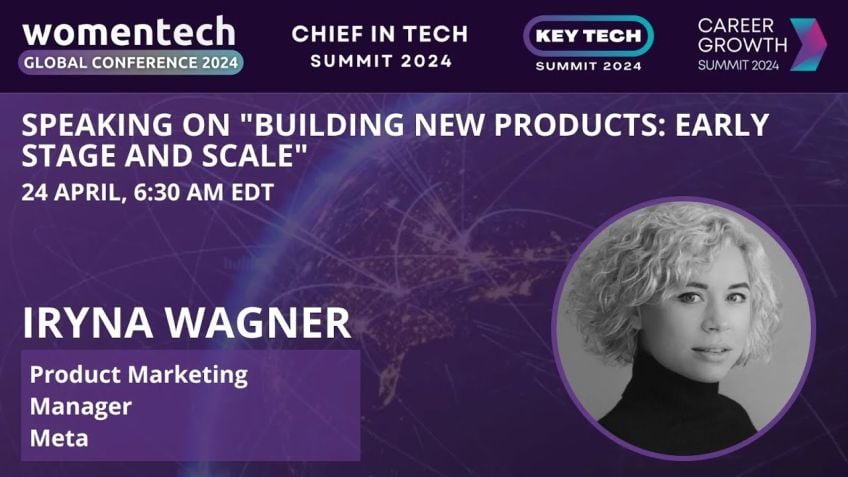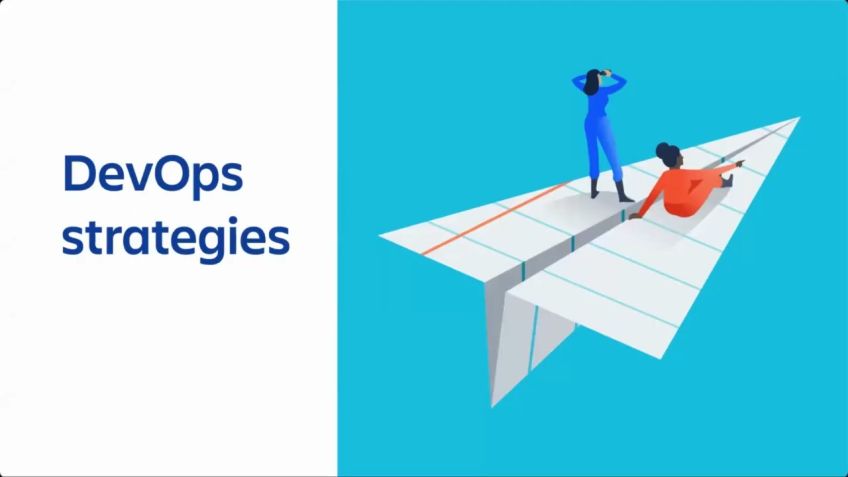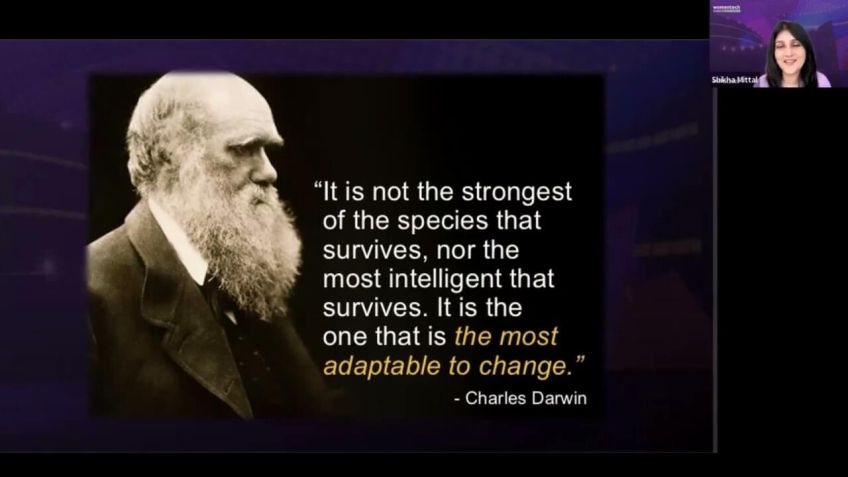Find Your Way to a Higher Performing Team by Muazma Zahid
Finding Your Way to a Higher-Performing Team with Mazama Zahed
Finding your way to a higher-performing team is of the essence in thriving in today’s competitive business landscape. Join Mazama Zahed as she shares her 4-step method that has proven effective in her role as a principal PM manager at Microsoft. In this blog, we will delve into the four effective steps that Zahed shared to double down on your team's productivity.
About Mazama Zahed
Mazama Zahed is an advocate for diversity, equity, and inclusion in addition to being a principal PM manager at Microsoft Azure. She has vast experience, working in the tech industry across three different continents and five different countries. Mazama welcomes any inquiries on technology, diversity, and data initiatives.
The Basics of Making an Effective Team
According to Zahed, effective teams hinge on four Cs; Care, Communicate, Collaborate, and Continuous Learning. Steadfastly abiding by these four Cs can significantly boost your team's productivity and advance the companies' business objectives. Let’s delve into how you can incorporate them into your team culture.
Care and Trust
Care is fundamentally about the relationships you foster with your team members, stakeholders, and in some cases, your customers. Practicing trust within your team is paramount in fostering a productive working environment. Zahed advocates for leaders to invest time in fostering meaningful connections with their teams, assuming positive intent, and integrating fun team building activities like the "Yes, and..." game.
Communicate
Effective communication is the lifeline of successful teams. Zahed emphasises the importance of active listening and establishing clear team values. She also encourages leaders to level up their communication efforts by being more explicit, avoiding blame games, and shifting the mindset towards more open-minded perspectives.
Collaborate
Collaboration requires teams to problem solve together, diversify team compositions and model collaborative behavior. Understanding the role of clarity and ambiguity while respecting all ideas can significantly enhance your team's productivity. Zahed urges leaders to strive for diverse representation in their teams, thereby spurring unique problem-solving approaches.
Continuous Learning
Continuous learning is about fostering a learning culture within your team. Leaders should encourage team members to continually expand their knowledge while also nurturing a learning culture within their teams. This can be achieved through learning and sharing sessions, adopting a hypothesis-driven approach, and continuously experimenting & learning.
Conclusion
All in all, care, communication, collaboration, and continuous learning are the four fundamental ingredients that make up a high-performing team. Zahed implores leaders to strive for these elements, asserting that doing so would foster a more productive and results-oriented team. Teams that are lacking in these four areas need to start fostering them to move towards higher productivity and success.
Contact
For any further inquiries on effective team-building approaches or regarding her work at Microsoft or diversity and inclusive initiatives, feel free to reach out to Mazama Zahed, ensuring to subscribe to her sessions for more informative content.
Video Transcription
Hi, everyone. Thank you so much for joining. Uh My name is Mazama Zahed. I am a principal PM manager at Microsoft. And today I am talking about finding your way to a higher performing team.Uh This is a topic this is very near and dear to me as a leader um in uh technical org. Uh when we talk about teams, it's very important to understand what are the basics of making an effective team. And how can we actually double down on the productivity of team if anything in the last two years we learned, uh this is, this is something which is very important and you're all part of certain teams, you're working different organizations. So this is a topic that you can also relate to. I have a four step method uh that, that I've shared in the past also and I would just like to get uh your feedback on this. Uh Please use the chat here. I will talk about the next 10 minutes or so and happy to take any questions. Um If you put it in the chat here. So a little bit about myself. I, as I said, I am RP A manager in Microsoft Azure in the data uh team. I've been in the tech industry for a long time. I'm an advocate of diversity equity and inclusion. I am a co-chair of women at Microsoft, which is the largest er G in Microsoft and I also support several other efforts in this space. Uh Fun fact about me.
I have uh lived and worked in uh three different continents in five different countries. Uh Feel free to connect with me afterwards. If I, if I'm not able to get your questions today, anything tech related diversity, equity initiatives related or data related, I'm happy to uh connect with you and answer any questions. So why I'm talking about teams? And this is one of my favorite quotes uh from Steve Jobs which says that great things in business are never done by one person, they're done by a team of people. It's not always just one idea of one person who can actually build anything which is useful and it's something we know as uh in, in, in tech or otherwise as well. Uh There's also very famous African Proverb uh that I live by is if you want to go fast, go alone, if you want to go far, go together. So it's important to create the culture in any team that you work in where everybody feels that belonging, so that you can work as a team and improve upon the results of the business that you're working on and it is very important to think about not you as an individual, but as a team.
And what makes a good team, what makes a higher performing team and what you can do more in this space um to, to make an effect in your organization. Why I'm talking about that today is if anything in the last two years that we have learned, especially with a pandemic, a global pandemic and also with remote work and remote first work, many companies have put down. So this is the data um survey by a third party. You can see between 2020 2021. Uh They don't have a 2022 data yet, but there is a huge shift of remote work and there is a lot more uh people thinking about uh their belonging to the workspace, they're thinking about what it, what makes sense for them and also uh what have been their struggles. So if you look at the data just here, there's the things around loneliness, things around collaboration, things around working with different time zones have been common challenges no matter where you work and what you work on. Uh And, and why I'm talking about this is what you can do to do to make an effect and, and change that throughout my career, I have worked in teams who are really, really high performing and really, really great as team cultures.
And I've also worked in teams which are not that way. So I'm sharing some of my key um key things that I have seen work in different environments. And I want you to take some of this to your teams or share your best practices here in the chat also. So others can learn from it. So the first and foremost, um this is the four step uh kind of method. If anything you can remember afterwards from this session, just remember these 44 CS such as care, communicate, collaborate, and continous learning. Uh If you don't remember anything else from this session, that would be fine. But if you can take these four to your teams uh to your ogs, if you're a leader, if you can incorporate those into your team culture, I think my uh this session would be successful from that perspective. So let's talk about how you do that. The first one which is care to me, it's a combination of caring and trust because the folks, if you are in a team where you trust your team members, you, you trust your relation, uh your, your um leadership, you trust your stakeholders. And in terms sometimes in your customers, this is where you will perform the best. Uh Some of the things how I've seen this work, some tangible examples, how you can build the trust in the team. Are these three? Again, there are so many others.
Uh Please here in, in the chat, some of your favorites. One of the things is, is free time together. It's not related to work. It's not related to any, any next, uh the work item. It's more about connecting with people at their human level. It could be free lunches, it could be coffee meetups, it could be virtual in person, whatever works, it could be morale events. So it's very important to know people and if you don't know and know, connect with them at personal level, no matter what they do at work, it's not going to create that feeling of care and trust. The second, which is, which is one of the most important things that I've seen with great leaders and great team is to zoom positive intent. Things go wrong all the time, especially in tech industry or whatever. If you have some code check in and you, and, and it breaks something else. Uh always think about the problem, not the person, the teams that actually do the finger pointing and people uh and, and blame games. Those are the ones where there's no trust and care and eventually you'll see people burn out and leave your teams. So it's very important to assume that positive intent and have that as a cultural value for your team.
And this last one is one of my favorites is a technique that we have used in the past. And something is a, is a social game also that you can play where you add an idea and other person can only say yes and I do have a link at the bottom that you can learn more about this. So you basically add up one other's ideas and only say yes to it and then add other things to it. Uh This is one interesting way to build that care and trust between teams. And again, there are so many other ways. Uh Please share some of yours in the chat here as well. So that is the first one, care and trust. If you, this is a fundamental people level, if you can't do this, and if you don't feel like this is uh this is something that is there in your team, the rest of it won't make any sense. The next one is communicate. Um why it is important at the end of the day? And we are social human beings. We pick up on how we communicate. We actually do our business on basis of communication.
There's no way you can run a product or launch anything without clear communication and communication is not about you saying things outside, it's about the other way. And this is something I want to emphasize here. The first and foremost thing for me is active listening, listen, not to answer but listen to really listen. So when you are, let's say you are a leader in your team and you're doing a 101. And you're asking somebody, how are you doing. It's not just to know, ok, I'm good. It's to really go beyond that and understand what is going on in their lives. It, how does that impact the work they do? What is that intersection? What are they passionate about? And this is the part which is true. Uh, not just in your one on ones, but every meeting that you go to and it, it does not matter what level you are. And if you're a leader in the or, or just starting your career, it's important to be that active listener and really listen, go going beyond the words and, and, and understanding that uh one of the things that has worked for me in the past is is writing down kind of team norms and some of the values uh and communicating that and rec and continue to communicate that with your team.
For example, I have a team with six or seven different time zones. We have some very clear kind of um values around what is OK with certain time zones and what's not, for example, there are certain meetings beyond certain time. We don't do that. One of the good example is we have no meeting Fridays. So this is something everybody knows, nobody schedules any meeting on anybody's calendar on Friday. Um So, so think, think about things where you want to clearly state what works for your team and what doesn't work. And this is, this is something which is shared values across different time zones, different uh different disciplines also in some cases, or it could be anything in your team depending on different parts of the projects that you work on. And last but not least uh level up your communication from a state perspective, your daily check ins, your pr s whatever you do, uh try to be more explicit about those. And, and this is something um I, I really like, this is something to, which was told to me by one of my mentors in, in the past is considering your goal is to not to be always right. And assuming that you could be wrong because this is a change in the mindset that you will see um how do you communicate, um People react to that communication and going back to that care and trust to build more performing teams. So that's the second most important one.
Now the third one is collaboration. So in terms of collaboration, I look at it as a team, uh 33 steps. So first and foremost is collaborate, solve um solve problems together. And why it is important is understanding the role of clarity and ambiguity is really important. I know in many teams. Uh if you don't know what you're supposed to do, what's your next level, how you can get there? There's no way anybody else can, can define that for you. So in some cases, you have to reach out to your leadership to your team and to understand what is your role and, and clear that um uh any task that assigned to you to, to create the uh clarity in that. And if you're not clear, definitely get to a whiteboard session, get to a virtual whiteboard session or in person or whatever works in your team and your art uh to, to get solve the problem together. All ideas are good ideas. Um That's something that should be fundamental in most of your teams. And if some of the ideas are rejected just when they are sent, then there's something fundamentally not working in the team. So I would highly recommend to think about problem solving problems together. Um You can always bring people who have done this before from somebody who's just starting their career. Um could have an idea or could have a solution that you might never have thought about. So keeping your mind open about that is really important.
The second is very obvious, but I would still like to say that if you have the same type of folks always doing the same stuff, you're not going to come up with new ideas, you're not going to solve any problems in a with a fresh L. So I would suggest um and I would highly, highly think that you, you all know that already by being there is to diversify, your teams and diversification is not just gender, it's a lot more than that. It's it's different backgrounds, different age groups, it's, it could be anything, right? So, think about your team from that lens and really look around your team and see if, if you have enough diverse folks in your team. Do, do you represent uh the right set of folks, especially from a customer perspective, who do you reach out to and all of that, it's really important to, to consider that there are many research, um, that, that uh that have been published that shows that um if you do have diverse teams, your business outcomes are actually much, much better.
The last one is modeling a collaborative behavior yourself. And, and this is something, is not the duty of your leadership. It's not the duty of every, it's not duty of um uh somebody who is the CEO or CFO of the company. I truly believe it's, it's, it's the responsibility of each and every person. You have to model that behavior if you expect somebody else to do the same, right? So every team, every organization, every meeting that you go to, you have to think from that perspective. And I really, really would recommend to think about um modeling that behavior yourself no matter what level you are in what team you work on, what products you work on. Uh This should apply to you in those, in that sense. Next. Um So, so far, we talked about the three CS, we talked about care and trust, we talked about the uh communication piece and now we're talking about the collaboration piece. The last one is um continuous learning. This is my favorite. Um This is in terms of in Microsoft, for example, we have this um Satya who is our CEO he has this thing uh which we share in many meetings or all out in many meetings. It, it's not the know it all culture, it's learn it all culture. So, so you should not be thinking that, that I know everything. You should not be thinking that oh if you think that then, then it's already failed. You previously believed that you're an expert in XYZ. And that is theoretically not possible.
There's always something you can learn from somebody else in the team and having that mindset of growth, mind set of learning and continous learning is going to enhance the work that you're doing. Because today you're working on XYZ tomorrow, you might be working on something else.
And that is true for my career. Every 4 to 5 years, I saw a huge shift in how things were done, what tools were used, what frameworks were used, what type of culture um things that they were changing. So if you think that this is how I've always done things and this is how it's going to be all is there. That's not the case. So I would highly encourage this uh mindset and culture in, in teams to think about continuous learning think about why not, why not try it out. We we have done in our team, some of the things that I've seen is is learning and sharing sessions, things like you go and learn something and you come back to the team and share with the team and it doesn't have to be always directly related to the work that you do. It could be anything um that that person is passionate about also in some cases. And uh one of the methods that is uh you know, more about me as a, as an engineer um as a science experiment method, which is a hypothesis. So think about anything that you want to solve. Think so have an hypothesis for this and then go and try, try to solve this, using that hypothesis. At the end, you can come back and say if this was true or false.
Um This will make the products that you're working on fail fast and learn from those mistakes from a early in the product department as possible. And this is a method that has helped in many teams that I worked with very productive and successful in the products that they have launched. Um So this is one of the codes on the, on the right hand side, which I, I really, really believe that nobody can stop you if you really want to learn something today at uh where we are, uh we have internet at our uh fingertips. Uh we have a lot of access in so many places. I know there are many parts of the world which is not equal access. Um but internet and mobile phones and uh social media and so many other places, you have ways to learn anything if you set your mind to, right? Um So I would suggest you think about that and, and go beyond just taking a course, make it a project for your team, make it a hackathon or mini hackathon for your team.
Do bug bashes in your team, things like that where you can actually bring the team together to solve a common problem while they are learning to solve that. And those are some ways you can definitely um make your team highly productive, really effective and build products that would be the future uh with that. I will leave you with this uh with this uh code or, or saying that today is a good day to try. So anything uh at the end of this, I would just like to sort of repeat the four steps, care and trust uh communication, collaboration and continous learning to me, these are the four ingredients of a higher performing team if you can get like 70% right on some of these. Uh I would, I would, you would see the results in your team very, very fast and the teams that are broken are the reverse of it where you'll see some of some pieces of fat are missing. Uh I will leave you with my uh connect uh how to connect with me afterwards as well. I think we have some time here. Uh feel free to send some questions here. Um I would be happy to answer those here as well. So I see um I see one comment by Jane saying that uh a lot of times managers really kind of miss on these one on ones. I believe this is a comment about, uh when, when we really just ask and then really don't do active listening.
Um So yeah, it's, it's really important. I think one on ones are really important as managers. If you're a leader in the team. Uh if you're not doing one on ones properly, you're really missing out. You should definitely, uh uh think about that as a regular thing, not just something you are, you have to do. That is a great way to connect with your team to know really what they have been up to, how you can help them, what you can unblock them and this is basically their time to share what's going on. It's not a status check meeting, it's not a meeting on like what is, uh uh what work they're working on. It's really to make sure that they, uh they feel that care and trust and over time, the managers that I, I have had especially good ones are the ones um who really check in and really understand what's going on in their uh in their team's um in the team's work and life at, at, in both cases.
Um Yeah. So the 11 question I see from uh Anne Marie is what tools do you use in? 11 for fellow dot app? Yeah, I think I've, I've used kind of different tools over the years. Um I, at this point I basically just use one note to kind of follow up on. I do tag folks. I put links there. So that works for me, but they are definitely a good suggestion. Uh There are a few uh uh apps that you can use. The work board is also another one that I've used in the past. Um So yeah, anything, um what you take as an action item, uh definitely follow up on that and then check in on the next one on one with your uh with your uh report on those things and follow up on that it ends for any, anything, any mentorship type sessions, any, any people that you meet coffee chats, I actually use some of these uh tools to follow up on because IW I tend to forget stuff.
Um And I think as I'm getting older, uh that's really important to kind of note down some of those things and take actions on those. Uh I see one question. Any other ideas of improving the engagement as a manager? Yes. Um So I think beyond the um uh beyond the. Uh uh so, so they are the, the morale events and other things that I, I mentioned, one of the things that you can definitely do is um I is definitely to really check in with us. And then also when I say about improving the team engagement is to, is to whatever whatever coms method you use, use teams or slack and things like that, we've had these water cooler type channels where, where the discussions, for example, that were used to happen in person, in some cases are happening over there.
It could be about like starting uh discussions of how was your weekend? What did you do on weekend? Things around engagement on? Oh, This is one learning that I did this week or this has been my win this week. Uh Things around. Uh This is something I I did not like or did not do well this time. So questions like that actually uh encourage folks to share other ideas as well. A book that you read an article that you recently saw a talk that you recently uh heard. So all of those could be good ways to actually start engagement in your team. So I think we are at time here again. Thank you so much for being here. Um I really appreciate all of you uh for listening to me and feel free to connect with me and um hopefully I'll, I'll see you around in the conference and you're enjoying the rest of the day as well. Thank you.





